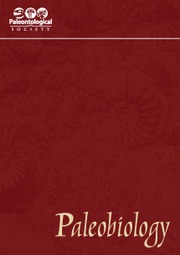No CrossRef data available.
Article contents
Drawing a gloriously false inference
Published online by Cambridge University Press: 08 April 2016
Extract
A stupid argument brings shame to any scholarly effort; but no dishonor attends an erroneous claim—especially in science, lest we all become psychological basket cases, because the vast majority of novel hypotheses turn out to be dead wrong. I would even grant substantial kudos to a class of claims that one of my colleagues, speaking of Emmanuel Velikovsky's neocatastrophic theories, called “gloriously wrong”—for this complex and radical argument enjoyed at least a glimmer of empirical plausibility, and would have annihilated most of our complacent beliefs about the nature of geologic change, had the evidence proved sound and the mechanism workable. But Venus turned out to be an old planet with a stable orbit, not a young comet, and the hypothesis of “worlds in collision” collapsed.
- Type
- Conceptual Index Fossils: Number 2
- Information
- Copyright
- Copyright © The Paleontological Society


